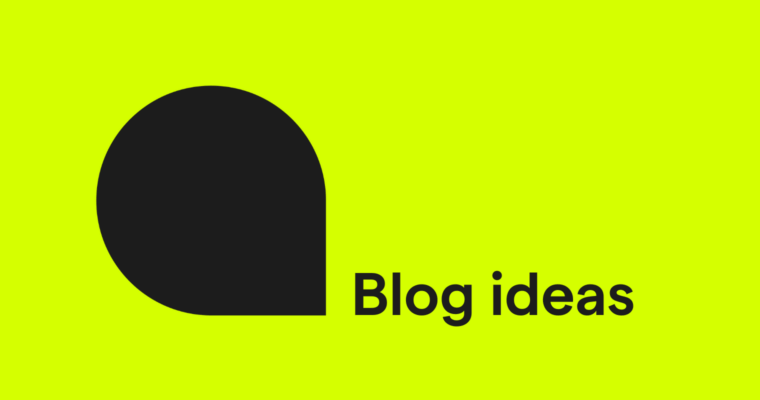How to Use “I Look Forward to Hearing from You”

- Use “I look forward to hearing from you” as a sign-off when writing to someone you want to hear back from soon.
- It’s a correct and common phrase used in personal or professional emails and is considered cordial and appropriately informal.
- When used professionally, the tone of this expression is friendly but firm, and it helps communicate your intention to receive a response from the person you’re writing to.
- Several alternatives to “I look forward to hearing from you” may be more effective, depending on your audience.
Using familiar phrases in your emails helps communicate your needs and desired responses in a widely accepted and understood way. The common phrase “I look forward to hearing from you” is a useful shorthand at the end of an email.
Here’s what you should know about the phrase, including when to use it professionally and some alternatives to make your message more effective.
Table of contents
Is it correct to use “I look forward to hearing from you”?
When to use “I look forward to hearing from you” professionally
7 alternatives to saying “I look forward to hearing from you”
“I look forward to hearing from you” FAQs
Is it correct to use “I look forward to hearing from you”?
Yes, using “I look forward to hearing from you” is grammatically correct, polite, and indicates that you expect to receive a reply shortly from the person you’re writing to. The expression uses a phrasal verb, which combines the verb “hear” with the preposition “from” to create a new meaning: “receive a reply.”
Although people sometimes use “looking forward to hearing from you” without “I,” this is grammatically incorrect because the sentence lacks a subject.
When to use “I look forward to hearing from you” professionally
Use “I look forward to hearing from you” when you want to end a professional email in an appropriately informal tone that communicates your expectations. It makes your desire for a response clear and is less open-ended than “I hope to hear back.”
For instance, it can be particularly useful in the following situations:
- In an interview follow-up email
- Addressing a colleague you’re collaborating with
- Talking to a recruiter
- Emailing a prospective client
This phrase can be easy to fall back on out of habit, even when it may not be the best option. Other phrases may be more effective if you have specific expectations about when you’d like the recipient to get back to you or what kind of feedback you need.
7 alternatives to “I look forward to hearing from you”
As is common with shorthand, “I look forward to hearing from you” is often overused. If recipients repeatedly receive the same email sign-off, they may overlook it completely, making it ineffective. Here are some alternatives to saying “I look forward to hearing from you” that may be more effective depending on your situation.
1 “Let me know if you have any questions—I’m happy to help”
Sometimes, you don’t necessarily need or expect a response, but you want to leave the door open if the reader needs to talk to you. That’s when this phrase is helpful. For instance, if you’re emailing your boss or a client, stating that you are open to that kind of collaborative experience and are prioritizing their needs can help establish rapport. It also works well the first time you email someone because it’s so friendly.
2 “Talk to you soon”
This phrase—“I hope to hear from you soon”—can be an excellent alternative to “looking forward to hearing from you” as it conveys a similar expectation in a different way.
You can also alter the time element (“soon”) to something more specific. For instance, if you and your correspondent have now scheduled a meeting and you don’t need to hear anything before then, you might choose to say, “Talk to you next week.”
3 “Unless I hear otherwise, I’ll assume you have no questions”
This phrase communicates a lot of trust, so it makes the most sense when used in less formal work environments or among teams you’ve worked with extensively. This phrase, like “Talk to you soon,” conveys that you don’t necessarily need a response while adding that you expect the reader to notify you if they have any additional needs.
4 “I appreciate your timely response”
This is a direct way to say that you anticipate a response and that it’s time-sensitive. While it doesn’t provide a strict deadline, there is a clear sense of urgency.
Another less insistent option is “I appreciate a response at your earliest convenience.” This phrase acknowledges that the recipient is busy and may not be able to get back in a “timely” fashion. However, if you genuinely need a quick answer, the original phrasing (or asking for a “prompt” response) is the way to go.
5 “Please keep me informed”
This phrase is short, authoritative, and to the point. It’s best used when you’re overseeing a project or employee and need to be kept up to date. It also implies a sense of trust in the recipient because you don’t need to clarify precisely when updates should come. Reserve this phrase for those you’ve worked with previously rather than new hires or collaborators.
6 “Let me know if you’re interested, and I’ll [X]”
This is another open-ended option that works best when you’re emailing someone who is not obligated to respond. Some examples are if you’re cold-emailing someone about your upcoming business venture or asking for help with a personal project. It also allows you to set expectations about how their response will be handled, which can help them understand whether they want to respond.
7 Be direct with a call to action
A call to action (CTA) is a direct statement about what you need from the reader. It can be handy in an email template going out to a large audience. For example, you may need the recipients to complete a task (such as filling out a survey), provide context, or point you to the right person. The CTA might request a follow-up email that includes the information or completes the action you requested.
“I look forward to hearing from you” FAQs
What does “I look forward to hearing from you” mean?
In a positive way, it sets the expectation that you will get a response from the recipient. It also implies that you enjoy working with them or appreciate their time.
Is “I look forward to hearing from you” formal or informal?
Although informal in tone, it’s appropriate for both personal and professional emails. Deciding when to use formal vs. informal writing depends on your audience. For instance, if you’re communicating with a friend or relative, you may take a more casual approach and say, “I can’t wait to hear from you.”
When should you use this type of expression professionally?
This expression can be helpful in situations such as following up on an interview, collaborating with a client, or talking with a recruiter.
What are three alternative expressions?
If you don’t want to use this phrase, you can instead say:
- I appreciate your timely response.
- Let me know if you have any questions.
- Please get back to me by [date].
-
![]() Business WritingWrite in Your Primary Language at Work: AI Translation to Enhance Your English Writing
Business WritingWrite in Your Primary Language at Work: AI Translation to Enhance Your English Writing -
![]() Business WritingElevating Presentations with AI: How to Use GenAI to Help Create Compelling Presentations
Business WritingElevating Presentations with AI: How to Use GenAI to Help Create Compelling Presentations -
![]() Business WritingHow to Come Up With Great Blog Ideas, With 15 Topic Ideas
Business WritingHow to Come Up With Great Blog Ideas, With 15 Topic Ideas -
![]() Business WritingThe Dos and Don’ts of LinkedIn Posting: Enhancing Your Professional Brand
Business WritingThe Dos and Don’ts of LinkedIn Posting: Enhancing Your Professional Brand -
![]() Business WritingHow to Write the Perfect “Congratulations on Your Retirement” Message
Business WritingHow to Write the Perfect “Congratulations on Your Retirement” Message -
![]() Business WritingJargon Phrases to Avoid in Business Writing
Business WritingJargon Phrases to Avoid in Business Writing
 Devon Delfino
Devon Delfino




